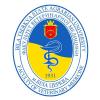Academic Council (list of members)
MAIN TASKS AND FUNCTIONS
of Academic Council
- determines the strategy and perspective directions of development of educational, scientific and innovative activity of the faculty;
- approves educational programs and curricula for each level of higher education and specialty;
- makes decisions on the organization of the educational process, determines the terms of study at the appropriate levels;
- approves the main directions of research and innovation;
- evaluates the scientific and pedagogical activities of structural units;
- considers plans of perspective development of faculty,
- approves issues concerning the state and directions of development of educational, educational-methodical, scientific and research work, international relations of the faculty;
- considers the issues of training of scientific and pedagogical staff, postgraduate and doctoral work;
- considers the preparation and publication of monographs, textbooks, manuals and other scientific and educational literature;
- considers and approves annual plans for professional development of pedagogical or scientific-pedagogical workers; those that are not part of the higher education system.
Student Council (list of members)
Purpose and tasks of the Student Council
The aim is to create conditions for self-realization of the applicants, the formation of their organizational skills, leadership skills, responsibility for the results of their work.
The activities of the Student Council are aimed at improving the educational process, improving the quality of education, ensuring the education of spirituality and culture of applicants, the growth of social activity among student youth.
Main tasks:
- protection of the rights and interests of applicants for higher education;
- ensuring that students fulfill their responsibilities;
- promotion of educational, scientific and creative activities of students;
- assistance in improving the living and recreation conditions of students;
- promoting the creation of various student groups, societies, interest clubs, as well as coordinating their activities.
Disciplinary Committee (list of members)
Purpose and tasks of the Disciplinary Committee
The aim is to promote adherence to ethical principles and standards, fundamental principles of academic integrity and the resolution of ethical conflicts between members of the faculty community.
The tasks are:
- to promote confidence building, partnerships between participants in scientific and educational activities, community consolidation;
- to establish a dialogue and reach an agreement through an objective and principled discussion of complex ethical situations;
- advise in situations that cause uncertainty in their ethics;
- provide expert assessments on the ethics of actions and behavior of members of the faculty community;
- develop recommendations for improving the culture of behavior of members of the faculty community and the dissemination of ethical values, principles and standards.
Group of the content and quality of education (list of members)
The purpose of the Group of the content and quality of education is to implement the strategic goals of the faculty
internal quality assurance of the educational process, the formation of culture
quality in the university community.
The main tasks are:
1) definition of principles and procedures for quality assurance of higher education;
2) monitoring and periodic review of educational programs;
3) providing professional development of pedagogical, scientific and
scientific and pedagogical workers;
4) ensuring the availability of the necessary resources for the organization
educational process, including independent work of students;
5) ensuring publicity of information about educational programs, degrees
higher education and qualification;
6) ensuring compliance with academic integrity by employees
university and applicants for higher education, including the creation and
ensuring the functioning of an effective system of prevention and detection
academic plagiarism
7) development of recommendations for improving the quality of education
activities and quality of higher education, participation in strategic planning
University.
Methodical Commission (list of members)
MAIN TASKS AND FUNCTIONS
of Methodical Commission
- approves questions on the state and directions of development of educational, educational-methodical, scientific and research work;
- considers the issues of preparation and publication of monographs, textbooks, manuals, curricula, work plans of disciplines, educational and industrial practice and other scientific and educational literature.
Committee on Biosecurity (list of members)
The international definition of biosafety in animal health is quite broad: “Biosafety is the implementation of measures
which reduce the risk of introduction (biological prohibition) and spread of pathogens
contamination); the latter requires adherence to certain procedures and human behavior to reduce risk at all
activities related to work with domestic, exotic, wild animals and products of their origin "
(World Organization for Animal Health, 2008).
FVM's philosophy on infectious diseases is to prevent and control: biosafety, prevention and
infection control - are necessary for the protection of human health in research centers, including
veterinary clinics. Satisfactory prevention and control of practical work is not the only thing you need
adhere to veterinary care. Infectious animals need appropriate care and
use of the necessary strictly defined procedures. The procedures used on FVM are designed
reduce the risk of all nosocomial and zoonotic diseases. Biosafety, infection prevention and control
conducting appropriate procedures used at the faculty are specifically designed to confront
threats to the possible occurrence of infectious and contagious diseases that may occur while working with
sick animals.
Objectives of the Faculty of Veterinary Medicine regarding biosafety programs:
- protection of clinic staff, students and animal owners (clients) from the effects of zoonotic pathogens;
- creation of optimal conditions for patient care in order to minimize the risks of in-hospital
infections;
- to optimize students' educational skills with relevant experience in biosafety and infection control
diseases, demonstrating in the clinic practical measures for prevention, control and monitoring;
- provide customers and people involved in small animals with control information and
prevention of infectious and parasitic diseases of animals and humans;
- to ensure safe operation of FVM.
